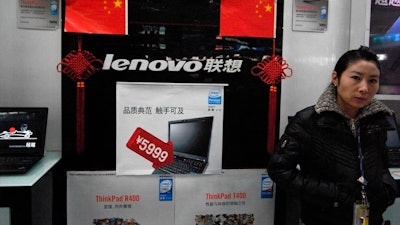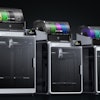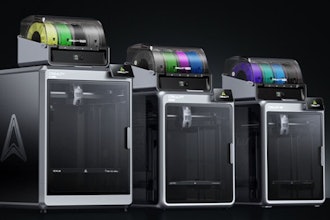
For many Americans, President Donald Trump's trade war may soon get very real.
His administration is preparing to extend 25% tariffs to practically all Chinese imports not already hit with duties, including toys, sneakers, shirts, alarm clocks, toasters and coffeemakers. That's roughly $300 billion worth of products on top of the $250 billion targeted earlier.
"The administration's decision to announce a tax on every product coming from China puts America's entire economy at risk," the Retail Industry Leaders Association said in a statement. "Americans' entire shopping cart will get more expensive."
Trump's tariffs are meant to put pressure on China in trade negotiations. The two countries have held 11 rounds of talks over American allegations that China steals technology, forces foreign companies to hand over trade secrets and unfairly subsidizes its own companies in a push to challenge U.S. technological dominance.
The Office of the U.S. Trade Representative on Monday published a list of 3,805 products that could be hit for the first time with 25% tariffs. The list includes things like tuna, pacifiers, saw blades, flashlights, door chimes, billiard balls and golf carts. It excludes pharmaceuticals and rare-earth minerals used in electronics and batteries.
The agency will take public comments and hold a hearing on the proposed tariffs June 17.
In its earlier rounds of tariffs on Chinese products, the administration tried to limit the effect on American consumers by focusing on so-called intermediate goods — imported components that U.S. companies use to make finished products.
That is about to change. Companies are already bracing for the fallout.
E-Blox, an educational toy company in Buffalo Grove, Illinois, imports toys from China and assembles and packages them in the U.S.
"We are keeping a close eye on this next round," said E-Blox Chief Operating Officer Joe Seymour. "That would be devastating."
If he tries to pass along the higher costs from the new tariff on toys to customers, he said, he will lose sales. And the company's profit margins aren't big enough for it to simply absorb the tariffs, he said.
Could E-Blox move manufacturing back to the U.S. — as Trump has suggested — to dodge the taxes on imports? Seymour said that would be hard because the Trump administration has slapped import taxes on the Chinese plastic injection molding machines he would need to produce toys in this country.
China, for its part, has punched back by imposing tariffs on $110 billion in U.S. products.
Trump on Tuesday shrugged off the tariff war. "We're having a little squabble with China," he said at the White House.
Mary Lovely, an economist at Syracuse University, said it is unclear whether the expanded tariffs will pressure Beijing to give in to U.S. demands.
Chinese leaders have been trying to shift their economy away from the low-margin consumer goods that make up a big share of the new $300 billion hit list and toward more expensive high-tech products. They might not want to sacrifice their technological aspirations to save jobs in industries that aren't part of their plan, Lovely said.
Some U.S. importers might try to switch to suppliers outside China, in countries like Vietnam and Indonesia. But the transition won't be easy. Costs could rise and quality slip as new suppliers replace experienced Chinese contractors.
"We've all worked for more than 20 years to get the manufacturing safety standards to the highest levels ever from vendors from China," said Jay Foreman, CEO of Basic Fun!, a toy company in Boca Raton, Florida, that imports from China. He said the company cannot simply switch to suppliers in India or Indonesia and can't move manufacturing to the U.S. either.
"For crying out loud, unemployment is 3.6%. Who is going to want to paint the eyeballs onto a Marvel action figure or Barbie doll here?" he said. "It's just not going to happen."
Some businesses are still reeling from the earlier tariffs.
At the Luggage Shop of Lubbock in Texas, business is down 6% from the same period last year.
"People are still traveling and buying, but they're just not buying as much of the upper mid-price points and higher price points, which is our bread and butter," owner Tiffany Zarfas Williams said. She had to drop plans to hire an extra person for the holidays.
As the trade war goes on, she said, "I don't know whether we'd be able to add any additional people."






















